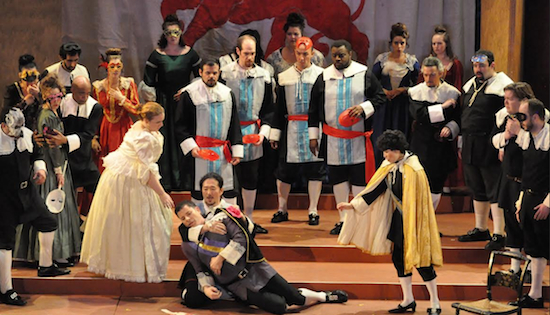Review: Regina Opera presents a thrilling ‘Un Ballo in Maschera’

On the afternoon of Nov. 22, the production of “Un Ballo in Maschera,” by Giuseppe Verdi and presented by Regina Opera, took place at Our Lady of Perpetual Help (OLPH) in Sunset Park. This production began Regina Opera’s 45th season. The first performance of this masterpiece was at the Apollo Theatre in Rome in 1859. Originally written about the assassination of King Gustav of Sweden, the censors gave Verdi a hard time, and he transferred the action to the late 1700s Boston and the Royal Governor. Verdi and his librettist, Antonio Somma, created a masterpiece. Many opera greats have sung the roles of Riccardo, Renato, Amelia and Oscar. On occasion, the Swedish version is given.
In short, against a background of political conspiracy, Riccardo, the governor of Boston, loves Amelia who is married to Riccardo’s best friend and secretary, Renato. A sorceress predicts that Riccardo’s best friend will kill him. Riccardo laughs it off. When Renato learns of the affair (which is actually chaste) he joins the conspirators and kills Riccardo at a lavish masked ball. Before dying, Riccardo forgives all and sends the grieving Renato and Amelia to safe passage in England.
